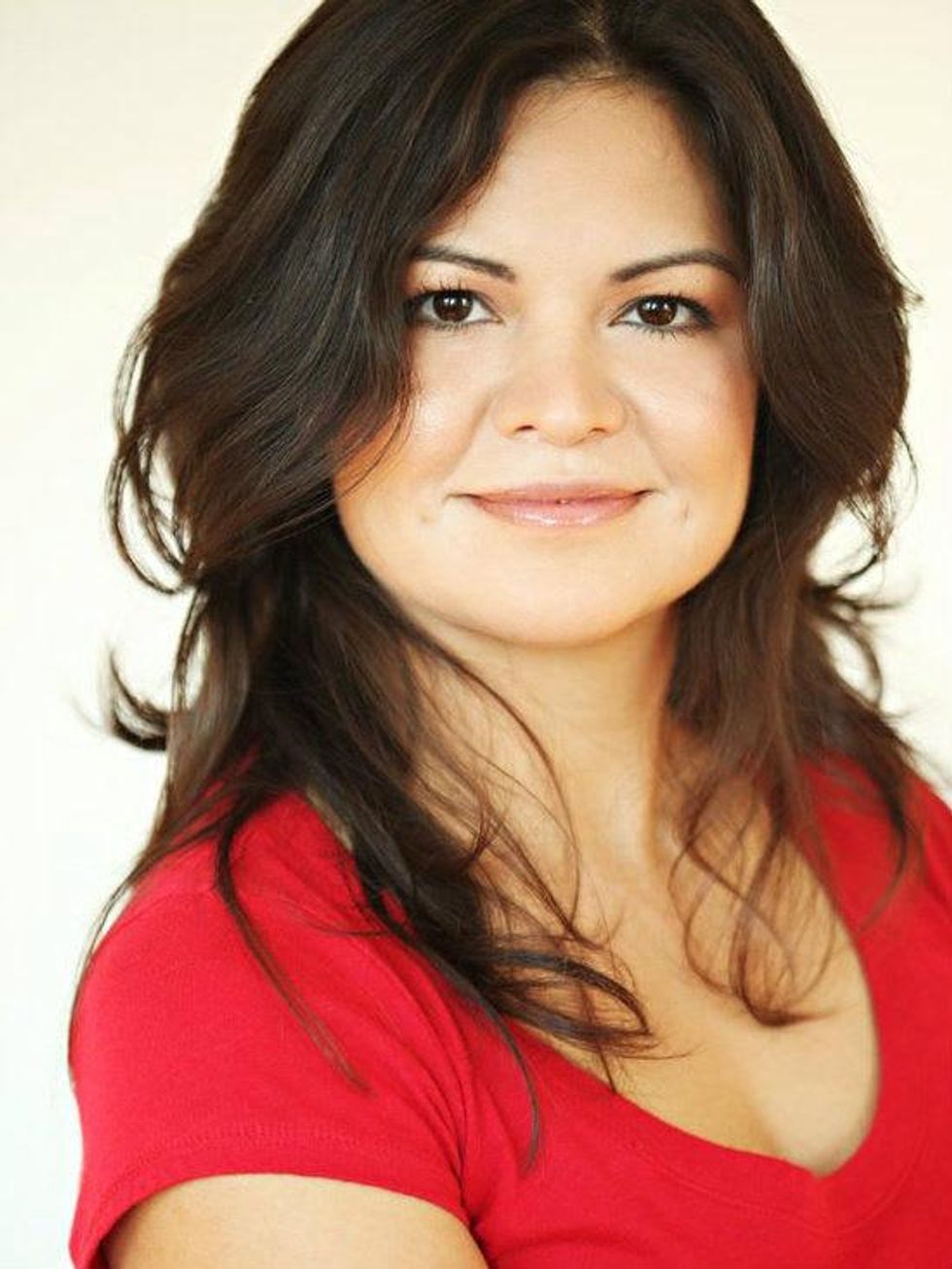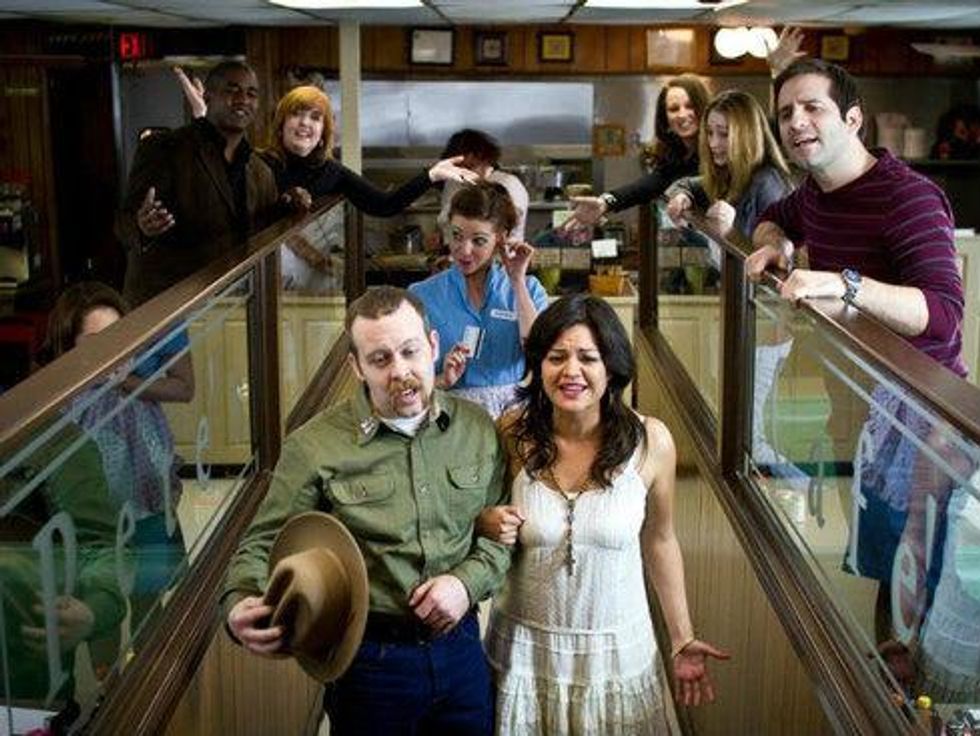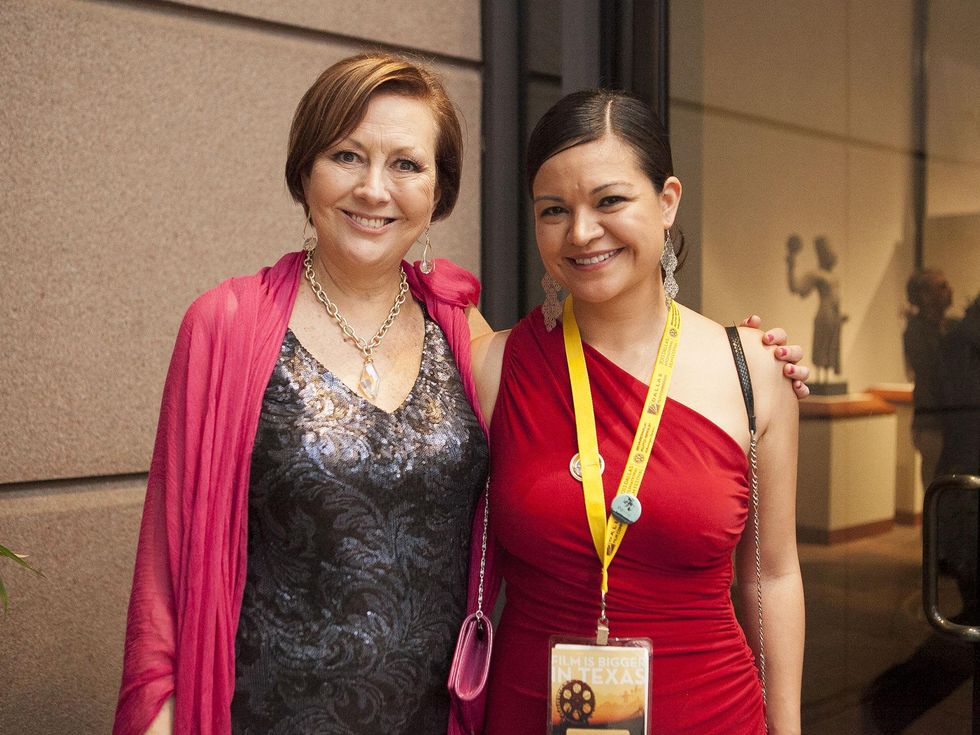Filmmaker Spotlight
Dallas documentarian Vanessa Lua proves you don't need a million bucks to make a movie
If you’ve attended the Dallas International Film Festival (DIFF) in the past five years, you’ve probably seen Vanessa Lua holding her bright pink iPhone, conducting interviews on the red carpet for her website, What the Hell Did She Say? But that is only one part of her story.
Lua is also a filmmaker, and her journey has been a circuitous one — from photography and red-carpet interviews to acting and improv. Eventually her movie made it to Texas Theatre’s rough-cut lab. And, hopefully, there is a festival in its future.
But Lua wasn’t always in the entertainment business. In 2008, she moved from Mexico to Dallas to work as an engineer, and she refers to this as a time when she “didn’t have friends,” claiming that her social life consisted of company barbecues with her sweet, but more settled down, co-workers.
“I never thought photography was the thing I was meant to do, but I knew I was on the right path,” Lua says.
In search of the lifestyle she’d left behind in Mexico, Vanessa bought a copy of D Magazine. In it she spied an ad for the Dallas International Film Festival, with photos of Charlize Theron and Robert De Niro on the red carpet.
First came a little white lie
In hopes of rubbing shoulders with some of these big timers, Lua signed up to volunteer at the festival that same year. She received an email saying the festival needed photographers, and she knew she had found her way in. There was only one problem: She wasn’t actually a photographer.
“I told them I was a photographer, and that I’d forgotten my camera in Mexico,” says Lua, laughing. “Now that I am actually a photographer, I know that no one would ever leave their camera.”
Lua landed a position with the festival, following around photographers and taking down names. In the meantime, she signed up for every class on photography she could find.
“I always knew I was meant for something,” Lua says. “I took all of these classes — belly dancing, guitar, painting, writing — and I was terrible. I never thought photography was the thing I was meant to do, but I knew I was on the right path.”
Then came acting
Lua continued volunteering as a photographer for DIFF and eventually was hired as a still photographer on the set of a local film. While on set, the director decided he wanted to include a maid in one of the scenes, and someone suggested Lua.
When she stepped into a role for a local film, Lua knew this — acting — was the creative outlet she’d been searching for.
She laughed it off at first, but she eventually agreed to play the part. Stepping into the role, Lua knew that this — acting — was the creative outlet she’d been searching for.
After some encouragement from others working on the film, she signed up for her first acting class. In less than a year, Lua went from pretending to be a photographer to not only becoming one, but also becoming an actress along the way.
The following year, Lua worked as a red carpet photographer for DIFF and slowly began conducting interviews with the attending filmmakers and talent. From this, the pink iPhone interviews were born.
“I started doing more festivals and then more interviews, and I kept wishing I had my videographer with me,” says Lua. “Then I realized, hey, I have my iPhone, and so I started using it to film interviews and post them to Facebook.”
And then some improv classes
Around this same time, Lua started taking improvisation classes to help her acting — something she says also helped her to become a better interviewer — but it wasn’t always easy.
“When I started taking improv at Comedy House, I signed up for eight classes, because I didn’t know what to expect,” says Lua. “I was terrified of that class. I’ve done a lot of things that were nerve racking, but I got to improv and I was like no, I’m not getting out of my car.”
Eventually Lua did get out of the car, but she struggled through those first eight classes, swearing that she was finished with improvisation once they were over. At the end of eight weeks, the group performed their routines for a live audience, and that show changed everything.
“It was amazing. At the end of the show it was like I was high or something,” says Lua. “I fell in love with it, and I knew I wanted to be good at it too.”
And, finally, her very own film
Through Dallas Comedy House, Lua not only discovered her passion for improvisation, but also for the people. These were the friends she’d been searching for in Dallas. This passion eventually resulted in Lua’s first directorial project, a documentary feature about Dallas Comedy House and the Mexican community.
Lua spent lunch hours at Barnes & Noble reading about documentary filmmaking, learning the process and watching other documentary films.
“I was in love with [Dallas Comedy House], and I wanted people to know about it. I said, ‘Let’s do a documentary,’ and everyone was like, ‘Sure, great idea,’” Lua says. “Then of course I realized I had no idea what I was doing. So I went home, and I literally typed into Google ‘how to do a documentary.’”
For the next month, Lua spent her lunch hours at Barnes & Noble reading about documentary filmmaking, learning the process and watching other documentary films.
At first, Lua says she was hesitant to include herself too much in the film, because she wanted the story to be about the community. But her team — director of photography Sean Anderson and editor Alex Wagner — realized that following Lua was the easiest way to get footage. So they began showing the cultural and emotional challenges faced by the local community through her experiences.
After almost a year of shooting, they finished with 55 hours of film. Lua and Wagner slowly began editing to create a story out of the footage, finally landing on a rough-cut lasting 84 minutes.
That’s when Lua heard about the Texas Theatre’s rough-cut lab. She knew the guys from Aviation Cinemas, who also run the Texas Theatre in Oak Cliff. She had even starred in the short film Anchor Baby earlier that year, which premiered during the inaugural Oak Cliff Film Festival, also co-founded by the Aviation Cinemas crew. One of the founding members of that crew is local filmmaker Eric Steele.
“I started freaking out because it was the first time I had ever directed anything, or had to deal with making all these decisions,” Lua says. “So I asked Eric if I could buy him dinner. He was so nice and helpful, just sharing his own experiences with me.”
Steele gave Lua some tips before she finally showed the edited version of her documentary, Comedy House, to an audience through the Texas Theatre’s rough-cut lab in August 2012. Lua and Wagner took the feedback she received from the lab and used it to edit the film down to 66 minutes.
“At that moment, I totally saw the story,” says Lua, who is currently submitting the final edited version to festivals. The total cost of making Comedy House was just over $6,000, proving that in this day and age, anyone really can afford to make a movie.
“I kind of see two types of filmmakers here in Dallas,” Lua says. “There are the ones that really want it — who you see at all the festivals and any other event they can attend — and then there are others who are never at any of these events. But they are also the ones complaining that nothing is happening for them.
“Unfortunately I think a lot of people are just waiting for that really rich person to approach them and say, ‘Oh my god, I think you are fabulous, I have like $200 million in the back of my trunk.’ That’s probably not going to happen. But you can do it yourself. Of course no one has an extra $6,000, but you can give up other things to save that money. You can make it happen.”



